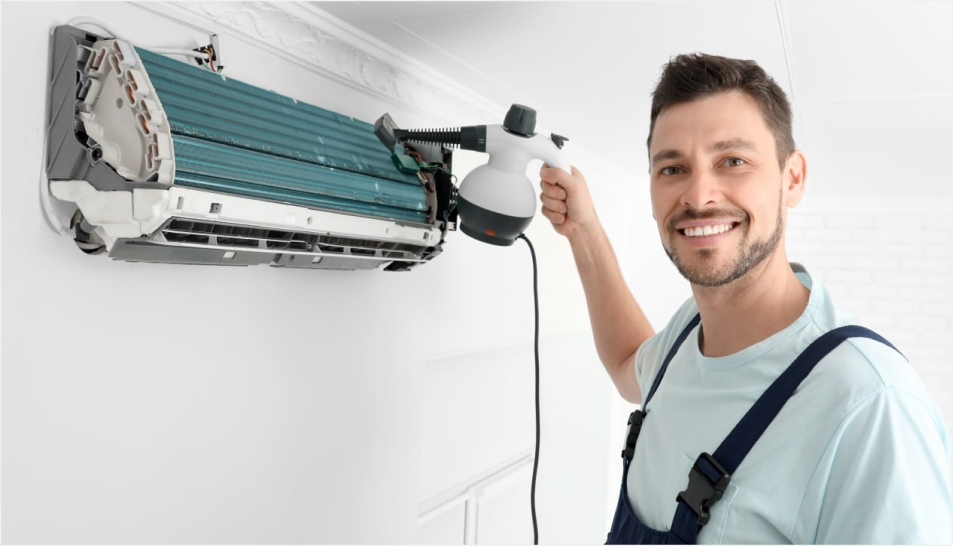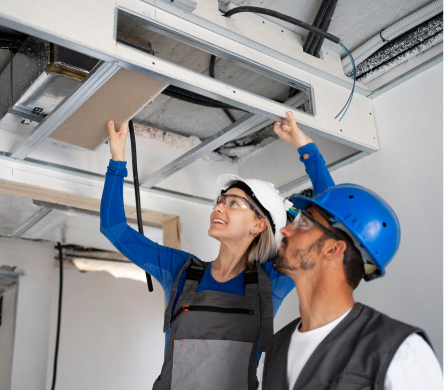VRF Air Conditioning System

About Our VRF Air Conditioning System
At Air Process Engineering Ltd. (APEL), we offer comprehensive VRF (Variable Refrigerant Flow) Air Conditioning Solutions designed for maximum efficiency, flexibility, and control in modern commercial and residential environments. VRF systems allow simultaneous heating and cooling across different zones, making them ideal for large office spaces, hospitals, hotels, and multi-storey buildings with varying thermal loads.
With the backing of Delta Air Solutions Group, our team of HVAC specialists provides customized VRF solutions—from detailed design and load calculation to installation and integration. We work with top-tier OEMs to deliver advanced systems equipped with inverter-driven compressors, intelligent controls, and zoned temperature regulation to enhance energy savings and user comfort.


Advantages of Our VRF Air Conditioning System :
- Zoned Temperature Control for Individual Spaces
- High Energy Efficiency with Inverter Technology
- Compact, Space-Saving Design
- Quiet Operation and Smart Controls
- Custom Installation and Reliable After-Sales Support
Frequently Asked Questions (FAQs)
Frequently Asked Questions – VRF Air Conditioning System
What is a VRF system and how is it different from traditional HVAC?
A VRF system uses refrigerant as the cooling and heating medium, and can simultaneously cool and heat different zones, unlike traditional systems which usually serve one function at a time.
Is VRF suitable for both commercial and residential projects?
Yes, VRF systems are ideal for a wide range of applications including offices, hospitals, luxury homes, hotels, and retail outlets due to their modularity and efficiency.
Do you provide design and consultation services for VRF systems?
Absolutely. We offer end-to-end services including design, heat load calculation, equipment selection, layout planning, and system integration.
Can a VRF system be integrated with a building automation system (BMS)?
Yes, our VRF solutions are compatible with most BMS platforms and come equipped with smart controls for centralized monitoring and automation.
